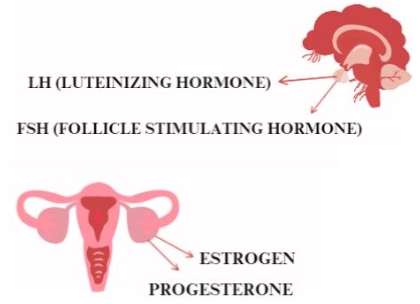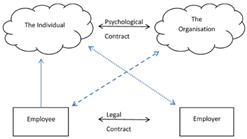Job burnout among healthcare workers—The impact of the COVID-19 pandemic
Abstract
The overall impact of pandemics on the healthcare sector has been substantial and multidimensional, presenting numerous challenges that have affected healthcare workers on various fronts. Pandemics, particularly the COVID-19 epidemic, caused destabilization in healthcare systems, creating complex challenges for both medical staff and patients. During the pandemic, healthcare professionals faced exceptionally difficult working conditions, such as increased workload, inadequate medical resources, and the pressure of making challenging moral decisions, for instance, related to the allocation of limited resources during a crisis. These factors increased the risk of occupational burnout—a state that may manifest as emotional exhaustion, depersonalization, and decreased self-esteem and efficacy. Occupational burnout among healthcare workers is a highly significant phenomenon because it can directly impact the quality of care provided to patients. Higher levels of burnout are associated with an increased risk of medical errors, decreased work engagement, and reduced empathy in patient interactions. Additionally, individuals experiencing burnout may encounter reduced social support, further complicating the issue. Consequently, the negative consequences of occupational burnout can have a long-term impact on healthcare workers themselves, the quality of medical care, and patient-provider relationships. Therefore, managing the risk of burnout among medical staff becomes a crucial challenge not only for the mental health of healthcare workers but also for ensuring high-quality healthcare for society. Providing psychological support, proper human resource management, and promoting a healthy lifestyle among medical personnel are essential to alleviating the psychological burden on workers and ensuring sustained, high-quality healthcare.
References
Alanazy, A. R. M., & Alruwaili, A. (2023). The Global Prevalence and Associated Factors of Burnout among Emergency Department Healthcare Workers and the Impact of the COVID-19 Pandemic: A Systematic Review and Meta-Analysis. Healthcare, 11(15), 2220. https://doi.org/10.3390/healthcare11152220
Alkhamees, A. A., Aljohani, M. S., Kalani, S., et al. (2023). Physician’s Burnout during the COVID-19 Pandemic: A Systematic Review and Meta-Analysis. International Journal of Environmental Research and Public Health, 20(5), 4598. https://doi.org/10.3390/ijerph20054598
Aronsson, G., Theorell, T., Grape, T., et al. (2017). A systematic review including meta-analysis of work environment and burnout symptoms. BMC Public Health, 17(1). https://doi.org/10.1186/s12889-017-4153-7
Bakker, A. B., & Costa, P. L. (2014). Chronic job burnout and daily functioning: A theoretical analysis. Burnout Research, 1(3), 112–119. https://doi.org/10.1016/j.burn.2014.04.003
Buselli, R., Corsi, M., Baldanzi, S., et al. (2020). Professional Quality of Life and Mental Health Outcomes among Health Care Workers Exposed to Sars-Cov-2 (Covid-19). International Journal of Environmental Research and Public Health, 17(17), 6180. https://doi.org/10.3390/ijerph17176180
Chen, R., Sun, C., Chen, J., et al. (2020). A Large‐Scale Survey on Trauma, Burnout, and Posttraumatic Growth among Nurses during the COVID‐19 Pandemic. International Journal of Mental Health Nursing, 30(1), 102–116. Portico. https://doi.org/10.1111/inm.12796
Chigwedere, O. C., Sadath, A., Kabir, Z., et al. (2021). The Impact of Epidemics and Pandemics on the Mental Health of Healthcare Workers: A Systematic Review. International Journal of Environmental Research and Public Health, 18(13), 6695. https://doi.org/10.3390/ijerph18136695
Chor, W. P. D., Ng, W. M., Cheng, L., et al. (2021). Burnout amongst emergency healthcare workers during the COVID-19 pandemic: A multi-center study. The American Journal of Emergency Medicine, 46, 700–702. https://doi.org/10.1016/j.ajem.2020.10.040
Chou, L.-P., Li, C.-Y., & Hu, S. C. (2014). Job stress and burnout in hospital employees: comparisons of different medical professions in a regional hospital in Taiwan. BMJ Open, 4(2), e004185. https://doi.org/10.1136/bmjopen-2013-004185
de Wit, K., Mercuri, M., Wallner, C., et al. (2020). Canadian emergency physician psychological distress and burnout during the first 10 weeks of COVID‐19: A mixed‐methods study. Journal of the American College of Emergency Physicians Open, 1(5), 1030–1038. Portico. https://doi.org/10.1002/emp2.12225
Dincer, B., & Inangil, D. (2021). The effect of Emotional Freedom Techniques on nurses’ stress, anxiety, and burnout levels during the COVID-19 pandemic: A randomized controlled trial. EXPLORE, 17(2), 109–114. https://doi.org/10.1016/j.explore.2020.11.012
Ghahramani, S., Lankarani, K. B., Yousefi, M., et al. (2021). A Systematic Review and Meta-Analysis of Burnout Among Healthcare Workers During COVID-19. Frontiers in Psychiatry, 12. https://doi.org/10.3389/fpsyt.2021.758849
Gomez, S., Anderson, B. J., Yu, H., et al. (2020). Benchmarking Critical Care Well-Being: Before and After the Coronavirus Disease 2019 Pandemic. Critical Care Explorations, 2(10), e0233. https://doi.org/10.1097/cce.0000000000000233
Lluch, C., Galiana, L., Doménech, P., et al. (2022). The Impact of the COVID-19 Pandemic on Burnout, Compassion Fatigue, and Compassion Satisfaction in Healthcare Personnel: A Systematic Review of the Literature Published during the First Year of the Pandemic. Healthcare, 10(2), 364. https://doi.org/10.3390/healthcare10020364
Macaron, M. M., Segun-Omosehin, O. A., Matar, R. H., et al. (2023). A systematic review and meta analysis on burnout in physicians during the COVID-19 pandemic: A hidden healthcare crisis. Frontiers in Psychiatry, 13. https://doi.org/10.3389/fpsyt.2022.1071397
Meira-Silva, V. S. T., Freire, A. C. T. N., Zinezzi, D. P., et al. (2022). Burnout syndrome in healthcare workers during the COVID-19 pandemic: a systematic review. Revista Brasileira de Medicina Do Trabalho, 20(01), 122–131. https://doi.org/10.47626/1679-4435-2022-849
Pfefferbaum, B., & North, C. S. (2020). Mental Health and the Covid-19 Pandemic. New England Journal of Medicine, 383(6), 510–512. https://doi.org/10.1056/nejmp2008017
Rizzo, A., Yıldırım, M., Öztekin, G. G., et al. (2023). Nurse burnout before and during the COVID-19 pandemic: a systematic comparative review. Frontiers in Public Health, 11. https://doi.org/10.3389/fpubh.2023.1225431
Romani, M., & Ashkar, K. (2014). Burnout among physicians. Libyan Journal of Medicine, 9(1), 23556. https://doi.org/10.3402/ljm.v9.23556
Rossi, M. F., Gualano, M. R., Magnavita, N., et al. (2023). Coping with burnout and the impact of the COVID-19 pandemic on workers’ mental health: A systematic review. Frontiers in Psychiatry, 14. https://doi.org/10.3389/fpsyt.2023.1139260
Ruiz‐Fernández, M. D., Ramos‐Pichardo, J. D., Ibáñez‐Masero, O., et al. (2020). Compassion fatigue, burnout, compassion satisfaction and perceived stress in healthcare professionals during the COVID‐19 health crisis in Spain. Journal of Clinical Nursing, 29(21–22), 4321–4330. Portico. https://doi.org/10.1111/jocn.15469
Stehman, C., Testo, Z., Gershaw, R., et al. (2019). Burnout, Drop Out, Suicide: Physician Loss in Emergency Medicine, Part I. Western Journal of Emergency Medicine, 20(3), 485–494. https://doi.org/10.5811/westjem.2019.4.40970
Stodolska, A., Wójcik, G., Barańska, I., et al. (2023). Prevalence of burnout among healthcare professionals during the COVID-19 pandemic and associated factors – a scoping review. International Journal of Occupational Medicine and Environmental Health, 36(1), 21–58. https://doi.org/10.13075/ijomeh.1896.02007
Teo, I., Chay, J., Cheung, Y. B., et al. (2021). Healthcare worker stress, anxiety and burnout during the COVID-19 pandemic in Singapore: A 6-month multi-centre prospective study. PLOS ONE, 16(10), e0258866. https://doi.org/10.1371/journal.pone.0258866
Tsan, S. E. H., Kamalanathan, A., Lee, C. K., et al. (2020). A survey on burnout and depression risk among anaesthetists during COVID‐19: the tip of an iceberg? Anaesthesia, 76(S3), 8–10. Portico. https://doi.org/10.1111/anae.15231
Ulfa, M., Azuma, M., & Steiner, A. (2022). Burnout status of healthcare workers in the world during the peak period of the COVID-19 pandemic. Frontiers in Psychology, 13. https://doi.org/10.3389/fpsyg.2022.952783
West, C. P., Dyrbye, L. N., & Shanafelt, T. D. (2018). Physician burnout: contributors, consequences and solutions. Journal of Internal Medicine, 283(6), 516–529. Portico. https://doi.org/10.1111/joim.12752
Xie, W., Chen, L., Feng, F., et al. (2021). The prevalence of compassion satisfaction and compassion fatigue among nurses: A systematic review and meta-analysis. International Journal of Nursing Studies, 120, 103973. https://doi.org/10.1016/j.ijnurstu.2021.103973
Copyright (c) 2024 Marika Wlazło, Daria Łaskawiec-Żuławińska, Mateusz Grajek, Ilona Korzonek-Szlacheta

This work is licensed under a Creative Commons Attribution 4.0 International License.









